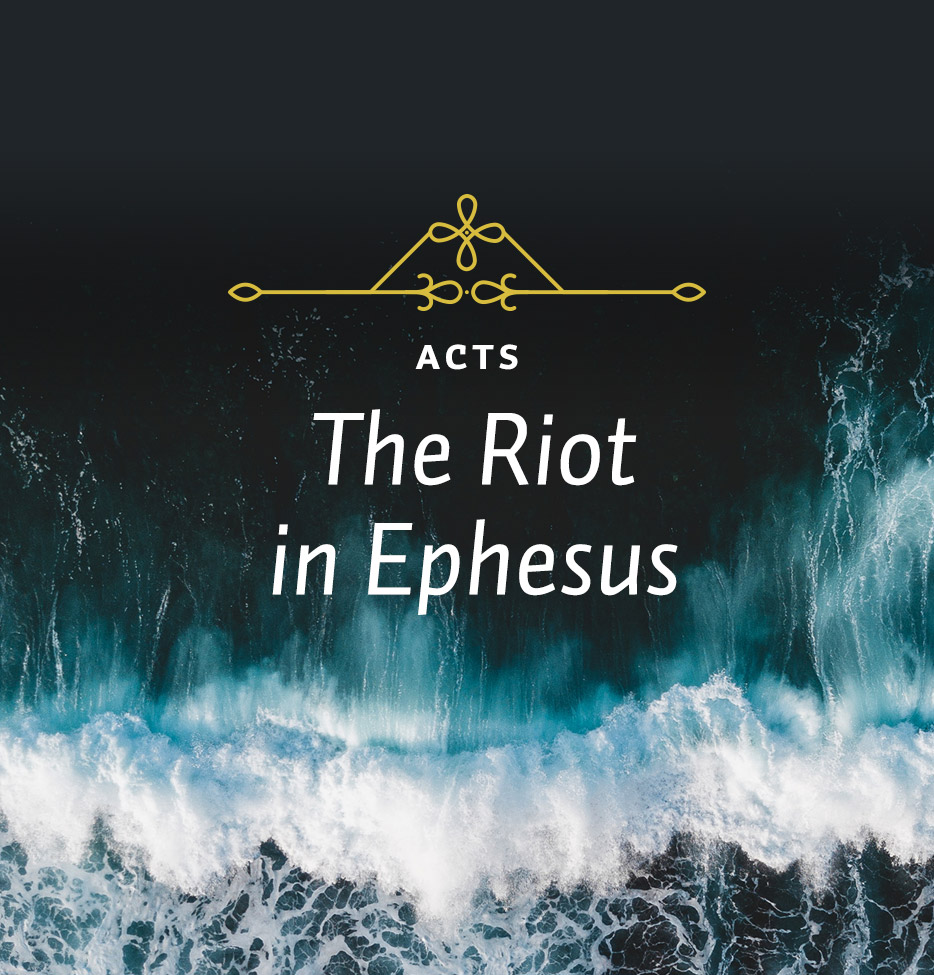The riot in Ephesus, described in Acts 19:23-41, was a proof of Paul’s success. If Paul had come to the city and had simply made a tiny, little beginning, with only a few people meeting perhaps somewhere in a home, none of this would have happened. A movement like that would have had no impact on Ephesian society. But the fact that there was a riot and so many people got stirred up in defense of Artemis is proof of how successful the preaching of the Gospel had been.
There had been a strengthening of the Christian community, first of all. That is, not only had the Gospel spread so that many had become Christians, but the Christians had gotten serious about being Christians. Maybe the place to start when thinking in terms of social reform today is with the transformation of Christians. These Christians had come under the power of the Spirit of God through the preaching of the Word so thoroughly that they were convicted of sin, confessed it, and then actually brought out and destroyed the things that were opposed to Christianity.
These were very valuable magic scrolls in which incantations were written. So here were people who brought their cultic possessions to be destroyed because they were serious about following Jesus Christ.
What followed after the Christians got serious was an impact on the society so strong that the riot described in this chapter was the inevitable reaction by those who resented it. Christianity had impacted their business. That is where people are hurt most: in their pocketbooks. And that is what happened. Many people, Christians and perhaps other people too, simply lost interest in the pagan temples.
There was a guild of silversmiths in Ephesus, just like in the Middle Ages. A guild is an organization of artisans that function like a trade union. The Ephesian silversmiths obviously had the power of a union, but theirs was a social grouping as well. They had enthusiasm and certainly also great concern for their own well-being, which was largely financial. Christianity had caused people to lose interest in the temple and, therefore, in buying the kind of things that were sold at the temple for use in worship. Formerly people would buy these cult objects, such as little statues of Artemis or of the temple, and would take them to the temple where they would offer them as part of their worship.
Demetrius and the others in his trade noticed that their profits were slipping. Since they were interested in their profits more than anything else, they started a riot to see if they could get Paul to leave Ephesus.
Demetrius was clever in the way he went about it. He talked to the silversmiths about money because that is what concerned them. But when he talked to the population, not all of whom were silversmiths and not all of whom naturally would be harmed by the decline in the silversmiths’ business, he talked not about financial matters but about “civic pride.” Everybody knows how important Ephesus is because of the great temple of Artemis, he said. These people have come to take away the glory of our great Artemis.
Let me suggest that if our Christianity is not affecting the economy of our world, we do not have much of a Christianity. I know we do not like to hear that, because we tend to think that our economy is the product of our Christianity. We think of the Western world, at least, as being Christian and therefore capitalistic, and there is something to that. At the same time, when Christians live as Christians, it will affect how they use their money, there will be an impact on the economy (negatively for some) and, inevitably, there will be hostility toward Christians, as there was here.






